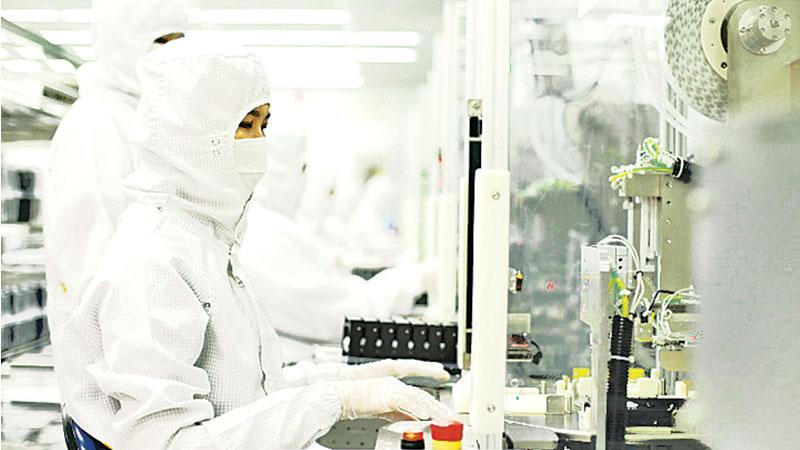
With a mission to inspire an interest in science and technology leadership and innovation among the nearly two billion youth of the world, FIRST Global (www.first.global) is launching the world’s first international robot Olympics for high school students, with nearly 160 nations, each committed to sending a team to represent their country. It is through science, technology, engineering, and mathematics that the growing minds of tomorrow can address the world’s most pressing matters to secure prosperous livelihoods for all nations. Determined to make their countries proud and show the world that all nations harbour bright minds that can bring about positive, significant changes to the world community, the students participating this year come from all six inhabited continents, representing cultures, religions, races, ethnicities, and socioeconomic backgrounds across the globe. Most noticeably, in a field where women have been historically marginalized, over 60 percent of the teams participating in the 2017 FIRST Global Challenge were either organized, founded, led, or brought into being by women around the world.
 Despite the rise of women to careers in politics, humanities, economics, and the arts, women continue to be significantly underrepresented in STEM-related fields of study while earning over 30 percent less than their male peers.The history of STEM has seen remarkable women, from Marie Curie and Dr. Mary Good, to Gwynne Shotwell, Maryam Mirzakhani, and Katherine G. Johnson, who through their ideas, talents, innovation, and sheer force of will, not only made some of the most consequential scientific discoveries of the modern world, but accomplished what their male peers couldn’t – all while rising above the gender-related prejudices they had to fight each day. Even in the 21st century we see that women, especially, younger girls, are faced with bias, prejudice, and long-lasting consequences of a predominantly patriarchal culture in nations around the world, which often hinder their development in STEM and robs the world of the many accomplishments they could otherwise contribute. The problem lies in that stakeholders across governments, international and nongovernmental organizations, academia, and corporations, have not and are not doing nearly enough to encourage women to pursue careers in science and technology, the same way as men.Women around the world have striven to ensure that the gender gap in science, technology leadership and innovation is reduced by inspiring young girls to continue breaking paradigms to pursue STEM education. FIRST Global is fortunate to work with such women who have brought over 100 teams into being, either by founding, organizing, or leading them. Among the dozens of women who have helped bring teams to the FIRST Global community include, Barbara Glover, a senior PhD student at the University of Pretoria who has helped organize many of the more than 40 African nations participating in this year’s FIRST Global Challenge; Fabiana Pedrini and Alicia Ferrando, who are mentoring the students of Team Uruguay; Janet Fofang not only mentoring Team Cameroon, but who also worked hard to recruit teams in Africa, Europe and Asia; Neza Guillaine in Ivory Coast; Hermelinda McKenzie in Costa Rica; Marie Claire Murekatete in Rwanda; Ilylia Kamaruzaman in Malaysia; and Reem Jarrar in Jordan to name a few.The efforts of these remarkable women have already shown extraordinary results as more and more young women have signed up to participate in the 2017 FIRST Global Challenge.
Despite the rise of women to careers in politics, humanities, economics, and the arts, women continue to be significantly underrepresented in STEM-related fields of study while earning over 30 percent less than their male peers.The history of STEM has seen remarkable women, from Marie Curie and Dr. Mary Good, to Gwynne Shotwell, Maryam Mirzakhani, and Katherine G. Johnson, who through their ideas, talents, innovation, and sheer force of will, not only made some of the most consequential scientific discoveries of the modern world, but accomplished what their male peers couldn’t – all while rising above the gender-related prejudices they had to fight each day. Even in the 21st century we see that women, especially, younger girls, are faced with bias, prejudice, and long-lasting consequences of a predominantly patriarchal culture in nations around the world, which often hinder their development in STEM and robs the world of the many accomplishments they could otherwise contribute. The problem lies in that stakeholders across governments, international and nongovernmental organizations, academia, and corporations, have not and are not doing nearly enough to encourage women to pursue careers in science and technology, the same way as men.Women around the world have striven to ensure that the gender gap in science, technology leadership and innovation is reduced by inspiring young girls to continue breaking paradigms to pursue STEM education. FIRST Global is fortunate to work with such women who have brought over 100 teams into being, either by founding, organizing, or leading them. Among the dozens of women who have helped bring teams to the FIRST Global community include, Barbara Glover, a senior PhD student at the University of Pretoria who has helped organize many of the more than 40 African nations participating in this year’s FIRST Global Challenge; Fabiana Pedrini and Alicia Ferrando, who are mentoring the students of Team Uruguay; Janet Fofang not only mentoring Team Cameroon, but who also worked hard to recruit teams in Africa, Europe and Asia; Neza Guillaine in Ivory Coast; Hermelinda McKenzie in Costa Rica; Marie Claire Murekatete in Rwanda; Ilylia Kamaruzaman in Malaysia; and Reem Jarrar in Jordan to name a few.The efforts of these remarkable women have already shown extraordinary results as more and more young women have signed up to participate in the 2017 FIRST Global Challenge.
Teams from Vanuatu, Tanzania, the United States, Afghanistan, Palestine, and Jordan are just some of the many all-female or female majority teams competing in Washington, D.C. this July. The latter, organized by the persevering women at the Jordan Education Initiative (JEI), wish to explore innovative ways to develop technology and enhance critical thinking skills, and hope – despite the challenges they face – to become their country’s robotics ambassadors in a field that people stereotypically associate with men.
FIRST Global participants like Team Tanzania want to continue working hard until all students, regardless of gender, have equal opportunities to explore STEM activities. In an effort to inspire an interest in technology innovation, one member of Team Tanzania makes an appeal to women across the region to join the countless who are already contributing to the advancement of science and the development of technology.
This team member discussed his mentor as a vivid example of how despite all the challenges and obstacles African women face in STEM fields and everyday life, that women can and must excel in the field that has historically marginalized them so everyone can reap the benefits of their work. If we are to have a chance at addressing the most pressing issues we face as a global community, we will need the best and the brightest – regardless of gender – in every region of the world from the rural parts of Latin America and the war-torn nations of Africa and the Middle East, to the major powerhouses of Europe and Asia and the often forgotten nations of Oceania, to be working day and night on the next big scientific breakthroughs that will revolutionize our lives. - First Global
